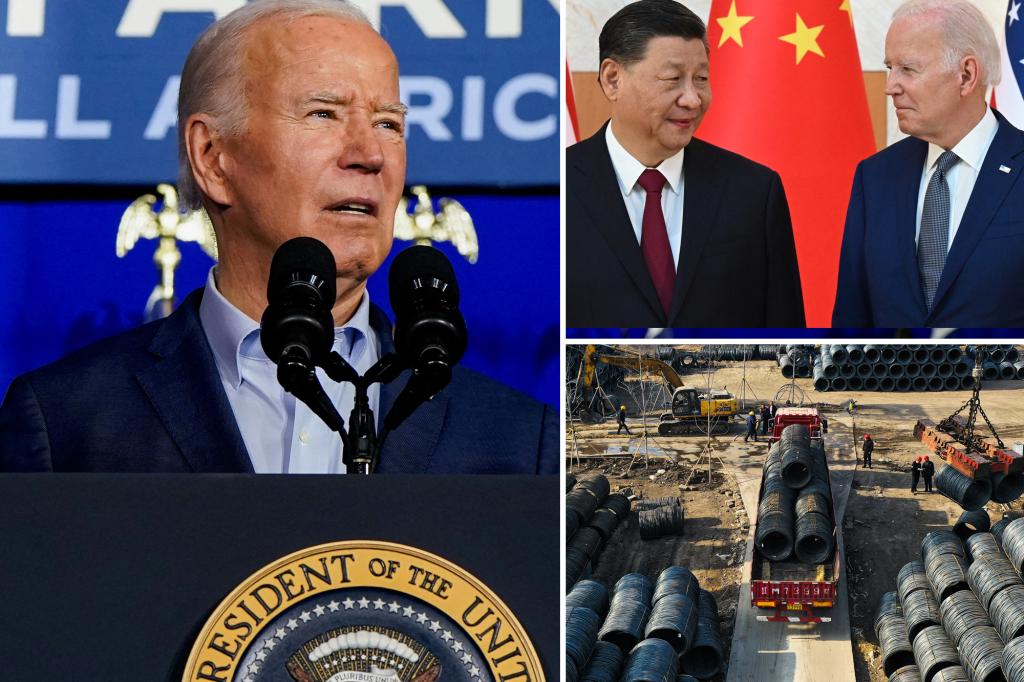President Biden is set to announce a new 15% tariff on Chinese steel and aluminum as he resumes former President Donald Trump’s trade war with Beijing after a three-year pause. The decision comes following concerns that China would flood the US market with cheap steel and aluminum, potentially harming American manufacturers. An administration official stated that China’s overcapacity in the steel industry poses a significant risk to the American steel and aluminum industry, leading to the need for protective measures.
The move to impose tariffs on Chinese steel and aluminum is part of Biden’s efforts to address the issue of China’s production levels surpassing demand not only in China but also globally. The official added that China’s subsidies and support measures result in the dumping of exports at artificially low prices, undercutting American steel. Biden has decided to maintain most of Trump’s tariffs, including a 25% tariff on steel and a 10% tariff on aluminum from most countries, which were initially imposed in 2018 under Section 232 of the Trade Expansion Act of 1962.
Trump’s trade war with China, which included tariffs under Section 301 on various Chinese goods, prompted hopes for a new trade pact that would benefit the US and improve their standing globally. However, these efforts were disrupted by the COVID-19 pandemic in March 2020, just two months after an initial agreement known as “Phase One” was reached. With the upcoming presidential election rematch in November, Biden’s decision to maintain some of Trump’s tariffs, particularly on steel and aluminum, is seen as ensuring continuity in US trade policy with China.
Biden’s move to impose additional tariffs on Chinese steel and aluminum comes as he campaigns for votes in Pennsylvania, a state known for its steel production and one that Trump narrowly won in 2016. Trade relations and protection of domestic industries were key issues in the state that tipped the balance in favor of Trump, and Biden’s decision to impose tariffs may appeal to voters concerned about the impact of a flood of cheap imports on American manufacturers. The state is expected to play a pivotal role in the upcoming election, making it essential for Biden to address key issues like trade relations with China.
Critics, including Republicans, have accused Biden of being too lenient on China, citing issues such as the flow of synthetic opioids like fentanyl into the US, resulting in significant deaths. Biden’s decision to impose a 15% tariff on Chinese steel and aluminum is seen as a response to these criticisms, showcasing a tougher stance on China. The move to triple the existing tariff rate on Chinese steel and aluminum under Section 301 reflects Biden’s commitment to protecting American industry and addressing concerns about unfair trade practices.
The formal review of the Trump-era tariffs will pave the way for Biden’s new tariffs on Chinese metals to be implemented. The White House has indicated that the current average tariff on steel and aluminum under Section 301 is 7.5%, and Biden has called for an increase in this rate to address the challenges posed by China’s excessive production levels. By imposing tariffs on Chinese steel and aluminum, Biden aims to protect American manufacturers from the impact of cheap imports and level the playing field in the global steel industry.


